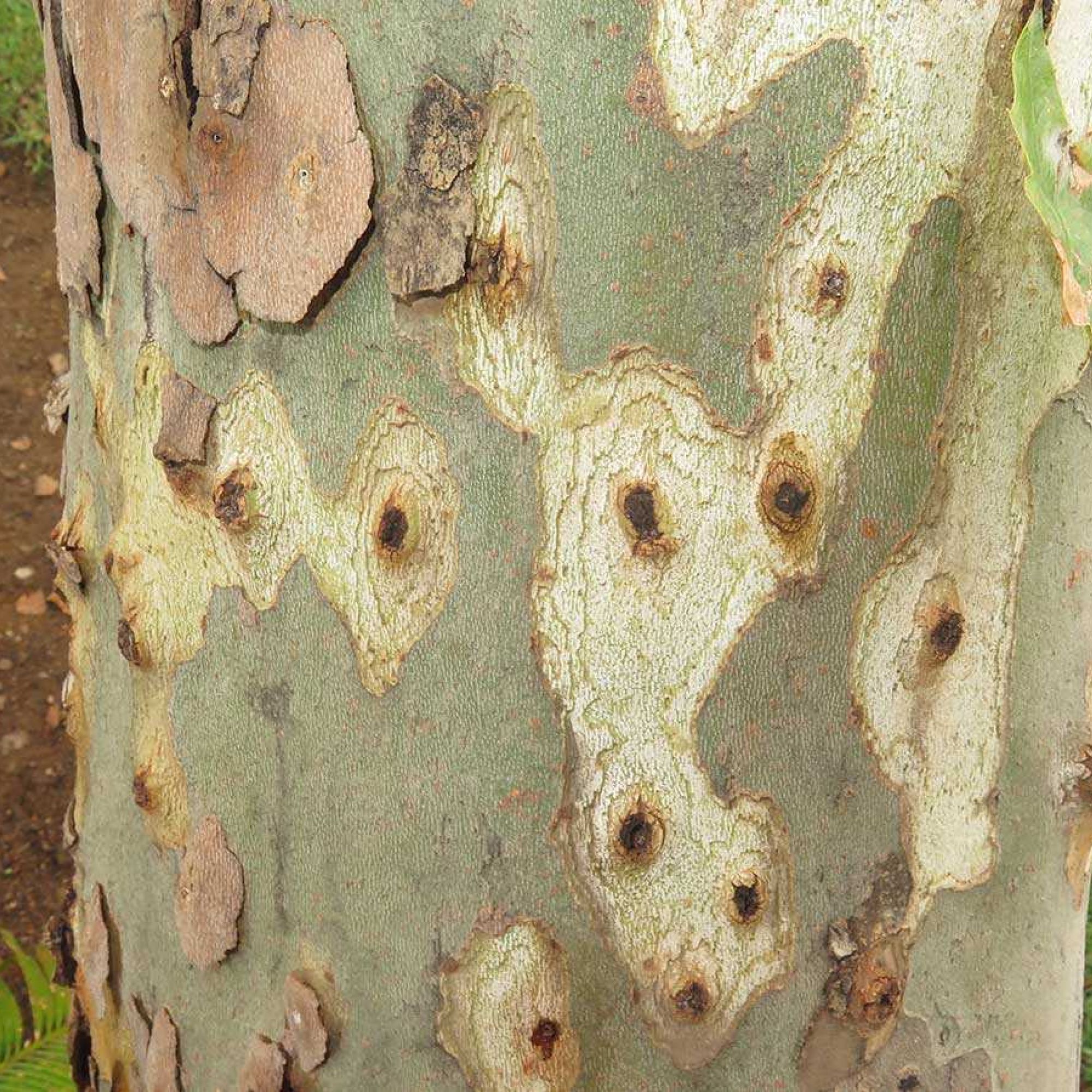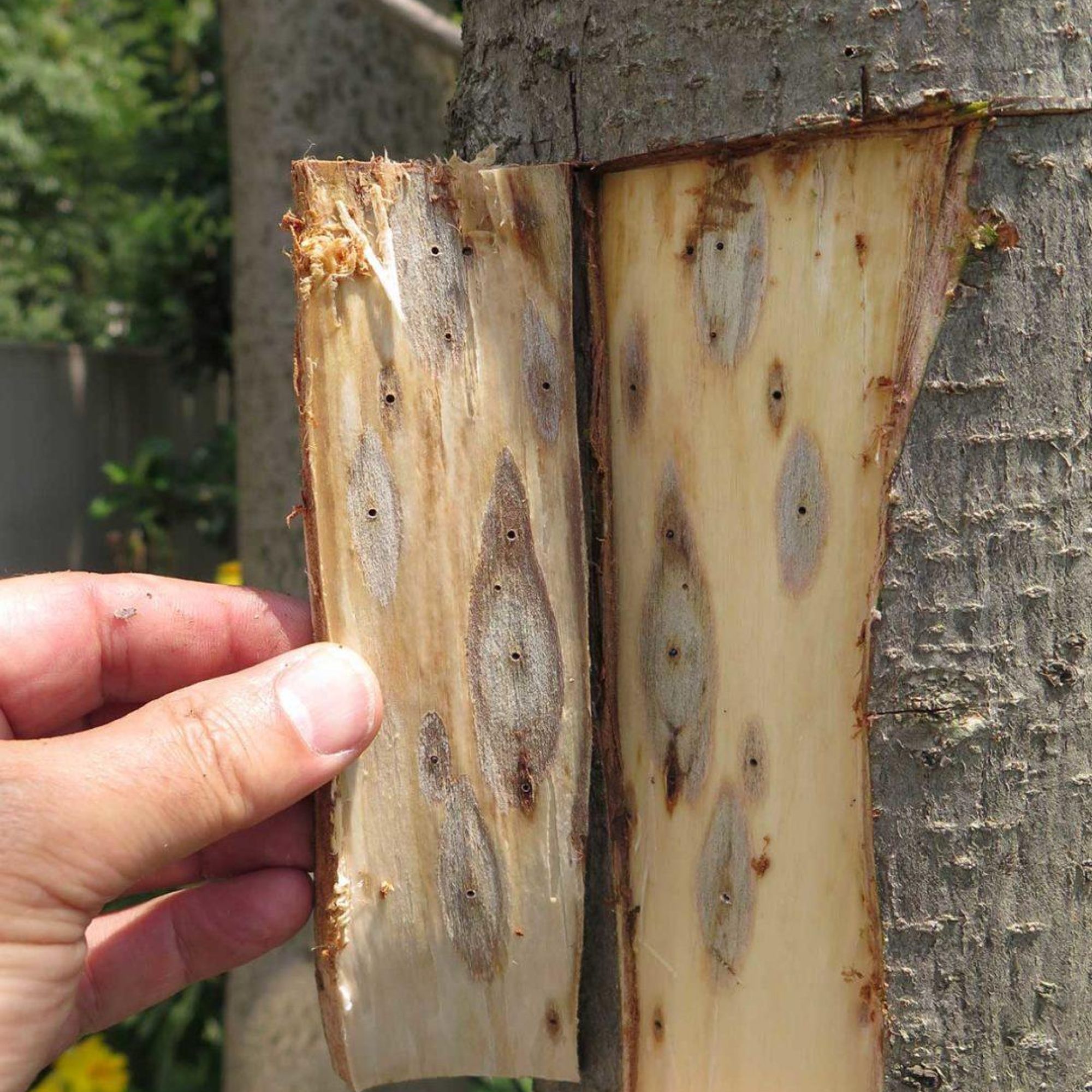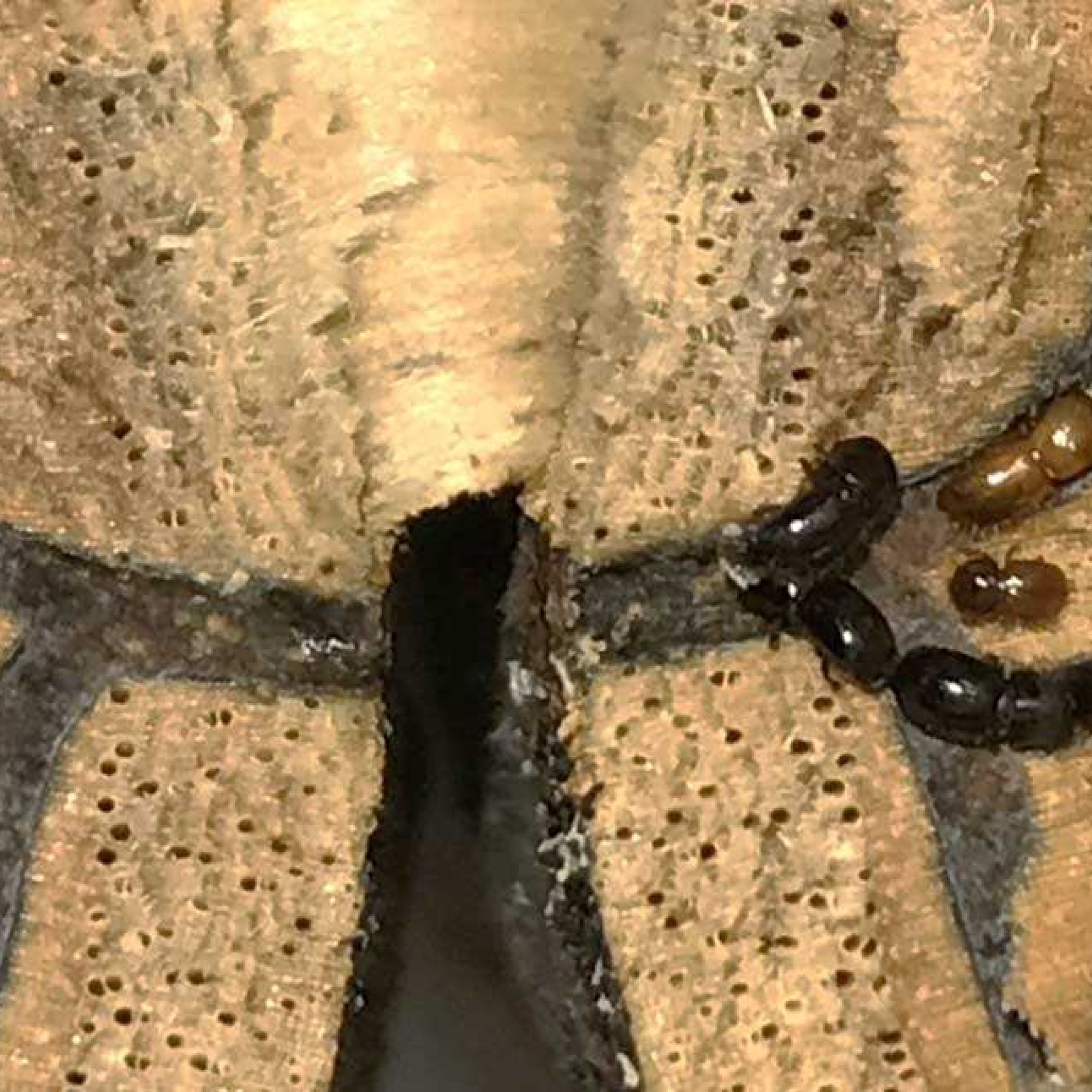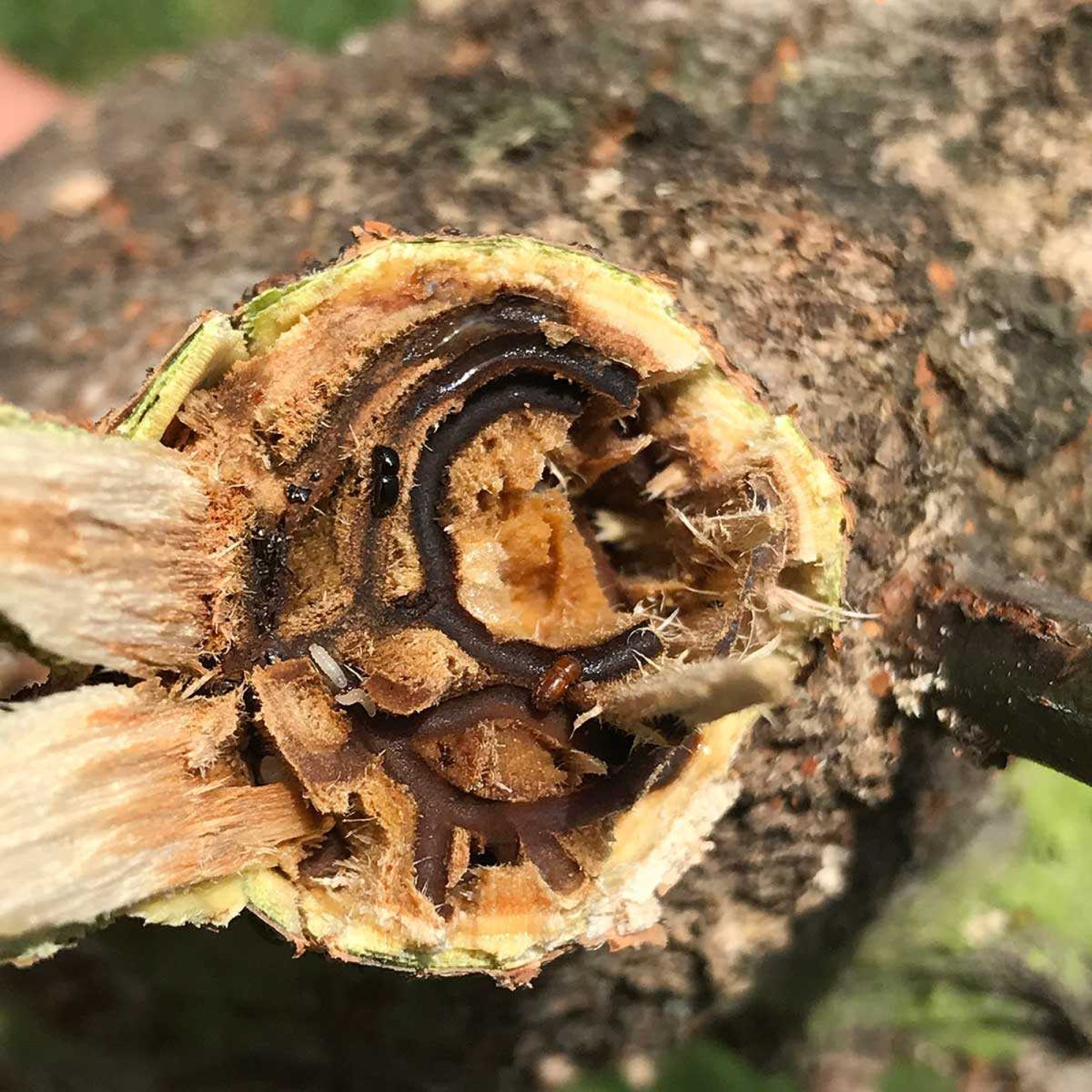
Little Beetle Causes Big Havoc
The Polyphagous Shot Hole Borer (PSHB), originally from Asia, has been causing devastation among trees, indigenous and primarily non-indigenous around the world.
First discovered in South Africa in 2017, the beetle has spread rapidly and is now well-established as a threat to agriculture and biodiversity.
PSHB infestations are most likely to be found at sites that are accessible to the public, particularly where they could have been introduced by infested firewood, in spots such as picnic sites, rest camps and along access roads. Due to their small size, beetles are not easily detected in wood articles or packaging materials.
Symptoms of infested trees (Boxelder and English Oak trees are particularly vulnerable) include the following:
- Branch dieback – cracks on the branch, discoloured leaves, dry and leafless branches, branch break-off revealing webs of galleries filled with black fungus.
- Gumming – blobs of goo coming out of the bark; oozing of liquid and gum from the beetle holes.
- Entry and exit holes – small holes on the bark of the tree the size of a sesame seed (2 mm); shotgun-like scars developing around the holes.
- Staining – brown or dark stains on the bark of the tree.
Infested trees may not be removed as the removal of the chipped wood would spread the pest to other areas. There is currently no chemical registered for use against PSHB in South Africa, thus no scientifically proven method for eradication yet.
CapeNature does not allow any firewood onto its reserves. Instead, visitors are encouraged to bring charcoal or eco logs or buy it at the reserves. These serve as environmentally friendly alternatives.
In addition, firewood sourced directly from a protected area /nature reserve may only be used in that specific protected area and this wood may not be removed from that area and transported further.
Visitors are encouraged to contact CapeNature reserves ahead of their stay regarding the availability of firewood, charcoal and eco logs. This can be done by emailing reservation.alert@capenature.co.za or calling 087 087 8250.
Visitors are welcome to bring their charcoal and eco logs. However, any wood will be confiscated upon entry and responsibly disposed of.
To learn more about the Polyphagous Shot Hole Borer beetle visit our animated presentation on our website or access a list of FAQs here.




Images.The Dangers Of Polyphagous Shot Hole Borer. 2023. www.thegardener.co.za/
Related News
How can I assist you today?
How can I assist you today?



